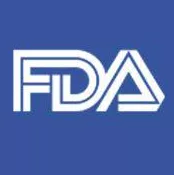Infant Arsenic Levels Still High After FDA’s Proposed Limit

On April 1st, the U.S. Food and Drug Administration (FDA) proposed a limit of 100 parts per billion (ppb) for inorganic arsenic in infant rice milk. Now, even after that proposal, a new study claims that babies who consume rice cereals and similar products had higher concentrations of arsenic in their urine compared to babies who had not consumed rice products.
Published in JAMA Pediatrics (an American Medical Association publication,) the study was based on data from the New Hampshire Birth Cohort Study in which researchers analyzed the eating habits of about 750 infants of mothers enrolled in the study.
FDA’s decision to limit levels of arsenic was based on research that showed a correlation between early exposure to inorganic arsenic and less than average performance on certain development tests.
The agency’s stance also stems from their own testing of 76 samples of infant rice cereals obtained from various retail stores. Their goal was to measure for concentrations of inorganic arsenic in each rice cereal product. Upon completion of testing, about half of the samples contained levels of inorganic arsenic that were higher than the now recommended limit of 100 ppb--even if only slightly.
“Our actions are driven by our duty to protect the public health and our careful analysis of the data and the emerging science,” says Susan Mayne, Ph.D., director of the FDA’s Center for Food Safety and Applied Nutrition. “The proposed limit is a prudent and achievable step to reduce exposure to arsenic among infants.”
FDA suggests that parents of infants and toddlers not rely solely on rice cereal products as sources of grain for a balanced diet. Barley, oats and wheat are suitable alternatives, according to FDA.
Sign up for Food Safety Magazine’s bi-weekly emails!
Looking for quick answers on food safety topics?
Try Ask FSM, our new smart AI search tool.
Ask FSM →







